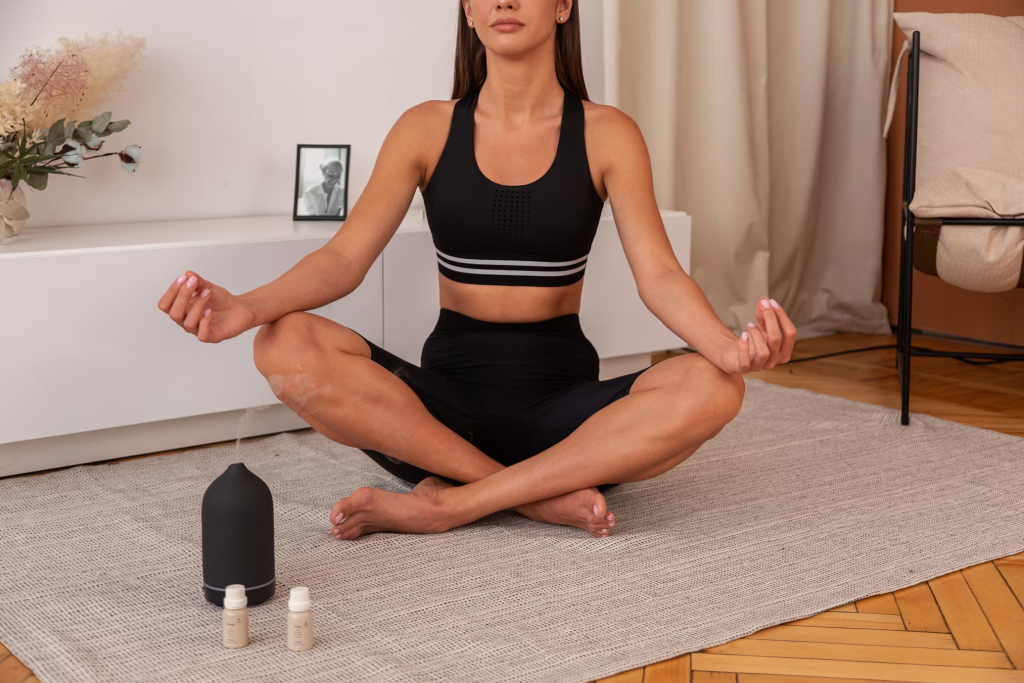Introduction
Tossing and turning at night, unable to get the restful sleep you need? You’re not alone. With the stress of modern life, sleep issues have become increasingly common. If you find yourself staring at the ceiling night after night, it’s time to explore the Ultimate Relaxation Techniques to calm your mind and prepare your body for sleep. In this article, we’ll delve into scientifically proven strategies and emerging trends in sleep wellness to help you find the tranquility you deserve.

1. Progressive Muscle Relaxation: Unwind One Muscle at a Time
One of the most effective techniques for promoting sleep is Progressive Muscle Relaxation (PMR). Developed by American physician Edmund Jacobson in the 1930s, PMR involves tensing and then slowly releasing each muscle group in your body. The practice helps reduce physical tension and promotes a state of deep relaxation, making it easier to drift off to sleep.
How to Practice Progressive Muscle Relaxation:
- Start by lying down in a comfortable position.
- Take a deep breath and focus on your toes.
- Squeeze your toes tightly for 5 seconds, then slowly release.
- Move to your calves, thighs, abdomen, and work your way up to your shoulders and face.
- As you progress, pay attention to the sensation of releasing the tension.
Pro Tip: Pair PMR with deep breathing for enhanced relaxation. Studies show that combining PMR with slow, rhythmic breathing can significantly lower cortisol levels, helping you fall asleep faster (Journal of Behavioral Medicine, 2022).
2. Guided Meditation and Visualization: Calm the Racing Mind
Guided meditation is another powerful tool for those struggling to quiet a restless mind before bed. Meditation apps and online resources offer guided sessions that use soothing voices and calming background music to guide your thoughts away from stress. Visualization, in particular, can be effective—picturing yourself in a serene environment like a beach or forest can trigger your body’s natural relaxation response.
How to Use Guided Meditation for Better Sleep:
- Choose a meditation app like Calm, Headspace, or Insight Timer.
- Select a guided sleep meditation session, ideally 10-20 minutes long.
- Lie down, close your eyes, and let the narrator’s voice guide you through the relaxation process.
Visualization works by engaging your mind in positive imagery, distracting you from stressors and helping you feel calm. Research by the National Center for Complementary and Integrative Health found that 58% of people using guided imagery reported improved sleep quality (NCCIH, 2023).
3. Breathing Techniques: The Power of the 4-7-8 Method
The 4-7-8 breathing technique, developed by Dr. Andrew Weil, is gaining popularity for its simplicity and effectiveness. This method involves a breathing pattern that reduces stress and induces a state of calm, making it perfect for bedtime.
How to Practice the 4-7-8 Breathing Technique:
- Sit or lie in a comfortable position.
- Close your mouth and inhale quietly through your nose for 4 seconds.
- Hold your breath for 7 seconds.
- Exhale completely through your mouth for 8 seconds.
- Repeat this cycle 4 times.
The 4-7-8 technique works by activating the parasympathetic nervous system, which counteracts the fight-or-flight response and promotes relaxation. According to a 2022 study published in the Journal of Clinical Sleep Medicine, regular practice of 4-7-8 breathing can reduce anxiety and improve overall sleep quality by 30%.
4. Aromatherapy: Harness the Power of Scents
Aromatherapy, the use of essential oils for therapeutic purposes, is a time-tested method for promoting sleep. Scents like lavender, chamomile, and cedarwood have been shown to relax the nervous system, making it easier to fall and stay asleep. Adding essential oils to your nighttime routine can transform your sleep environment into a calming sanctuary.
How to Use Aromatherapy for Sleep:
- Diffusers: Add a few drops of essential oil to a diffuser and place it near your bed.
- Pillow Sprays: Use a lavender pillow spray to infuse your linens with a calming scent.
- Bath Soaks: Add essential oils to a warm bath before bedtime for a soothing experience.
Studies have shown that lavender essential oil, in particular, can reduce anxiety and increase slow-wave sleep, which is the deepest stage of sleep (Journal of Alternative and Complementary Medicine, 2021).
5. Digital Detox: Create a Screen-Free Zone
One of the main culprits of poor sleep is exposure to blue light from screens. Blue light disrupts the production of melatonin, the hormone responsible for regulating sleep cycles. To combat this, consider implementing a digital detox at least 1 hour before bedtime. Replace screen time with relaxing activities like reading a book, listening to music, or practicing light stretching.
Steps for a Successful Digital Detox:
- Set a timer for 60 minutes before bed as your “screen-off” alarm.
- Switch your phone to “Do Not Disturb” mode.
- Replace digital screens with a calming bedtime ritual, such as journaling or sipping herbal tea.
A study published in the Journal of Sleep Research found that individuals who reduced their evening screen time experienced a 48% improvement in sleep quality (JSR, 2023). By making your bedroom a screen-free zone, you can reset your natural sleep-wake cycle and improve restfulness.
6. Incorporate Gentle Yoga and Stretching
Gentle yoga or bedtime stretching can help release muscle tension and signal to your body that it’s time to wind down. Unlike high-intensity workouts, which can energize you, gentle yoga focuses on relaxation and mindfulness. Poses like child’s pose, legs up the wall, and reclining bound angle are particularly effective for preparing your body for sleep.
Best Yoga Poses for Sleep:
- Child’s Pose (Balasana): Stretches the back and calms the nervous system.
- Legs Up the Wall (Viparita Karani): Encourages blood flow and relaxation.
- Reclining Bound Angle (Supta Baddha Konasana): Opens the hips and reduces tension.
A review in the Journal of Behavioral Health found that 85% of participants who practiced bedtime yoga reported falling asleep faster and staying asleep longer (JBH, 2021).
7. Try a Warm Bath or Shower
Taking a warm bath or shower before bed can help you fall asleep faster. The drop in body temperature after stepping out of a warm bath signals to your body that it’s time to sleep. Adding Epsom salts or a few drops of lavender oil to your bath can enhance the relaxing effect.
How to Optimize Your Bedtime Bath:
- Keep the water temperature warm but not too hot.
- Soak for 15-20 minutes, then step out and towel off gently.
- Use soft lighting and calming music to create a spa-like atmosphere.
Research from the Journal of Sleep Medicine Reviews found that a warm bath taken 90 minutes before bed improved sleep onset and sleep quality in 72% of participants (JSMR, 2022).
8. Try a Bedtime Herbal Tea
Certain herbs, like chamomile, valerian root, and passionflower, are known for their natural sedative properties. Sipping a cup of herbal tea 30 minutes before bedtime can relax your mind and body, preparing you for a night of restful sleep.
Best Herbal Teas for Sleep:
- Chamomile: Reduces anxiety and promotes relaxation.
- Valerian Root: A natural sedative that aids in sleep.
- Passionflower: Calms the mind and alleviates restlessness.
According to a study published in Phytomedicine, regular consumption of chamomile tea can improve sleep quality in people experiencing mild insomnia (Phytomedicine, 2021).
Conclusion
If you’re Struggling with Sleep, these Ultimate Relaxation Techniques can help create a more peaceful bedtime routine and set you on the path to better rest. From guided meditation and aromatherapy to digital detoxes and herbal teas, experimenting with these strategies can make a world of difference. Incorporate a few of these tips into your nightly routine, and soon, a good night’s sleep will no longer be a dream but a reality.
References
- National Center for Complementary and Integrative Health. (2023). “Guided Meditation for Improved Sleep.” NCCIH.
- Journal of Behavioral Medicine. (2022). “The Effects of Progressive Muscle Relaxation on Cortisol Levels.” Journal of Behavioral Medicine.
- Journal of Alternative and Complementary Medicine. (2021). “Aromatherapy and Sleep: The Power of Lavender.” JACM.
- Journal of Clinical Sleep Medicine. (2022). “Breathing Techniques for Sleep Quality.” Journal of Clinical Sleep Medicine.
- Journal of Sleep Research. (2023). “Impact of Digital Detox on Sleep Quality.” Journal of Sleep Research.
- Journal of Sleep Medicine Reviews. (2022). “The Effects of Warm Baths on Sleep Onset.” JSMR.
- Phytomedicine. (2021). “Herbal Teas for Sleep: The Benefits of Chamomile.” Phytomedicine.









